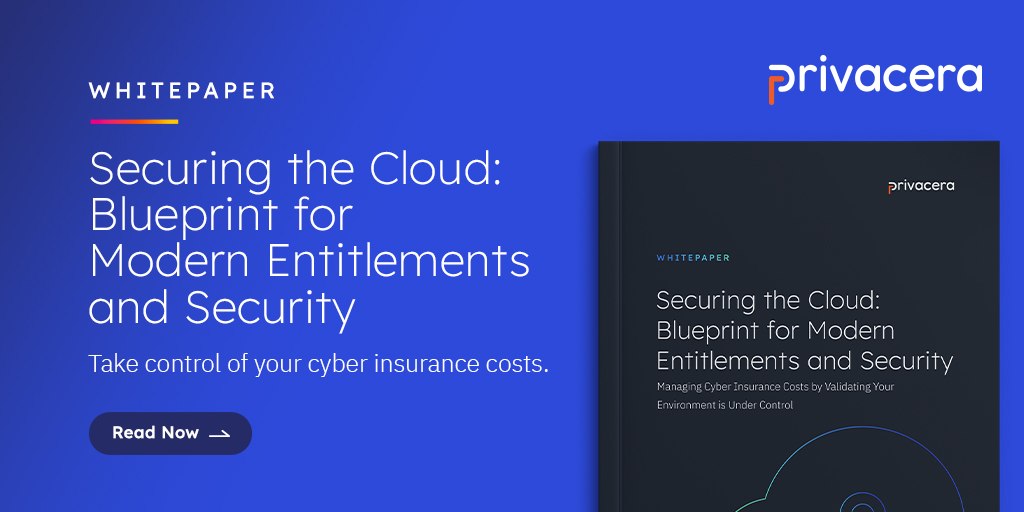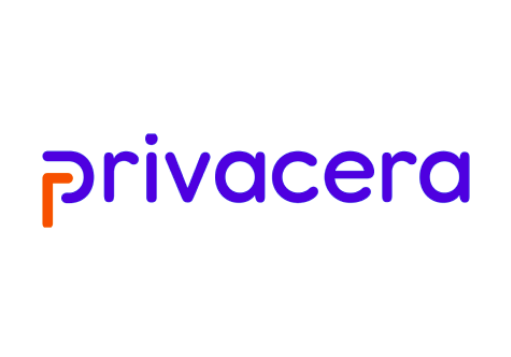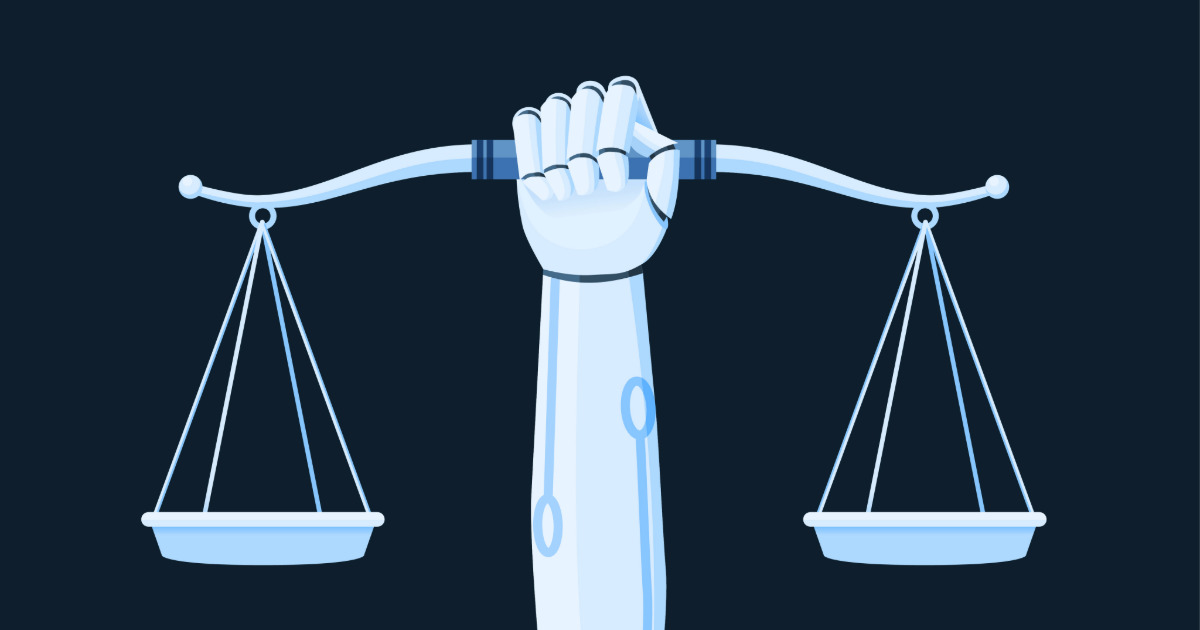Generative AI is perhaps one of the most powerful breakthroughs in recent history.
With the ability to produce human-like text, images, and even videos, generative AI promises to change the way we create content. And it’s already revolutionizing every industry you can think of, from finance to law.
However, generative AI also presents a lot of ethical and security concerns. For instance, deep fake videos can impersonate someone doing a criminal act, which malicious actors can use for extortion or blackmail.
That is where an AI governance framework comes in.
But before we get into the details, let’s address the most critical question — what is artificial intelligence governance?
What is AI Governance?
Generative AI governance, or GenAI Governance, is the set of policies, regulations, and frameworks that help guide the responsible use of AI applications.
At present, generative AI presents a grave threat when not regulated. Its ability to create realistic but potentially inaccurate content can be used to mislead and misinform people. Even well-intentioned AI prompts can lead to catastrophic results which is why AI governance is quickly becoming a crucial part of an exemplary data governance framework.
One of the fundamental principles of data governance is a high-quality, trusted data source, ensuring that any insights you derive from them are reliable and accurate. But if your database is filled with information generated by unregulated AI, there’s no way to verify that accuracy.
An artificial intelligence governance framework can monitor and validate AI-generated data before it hits your data warehouse. Bad data can be filtered or eliminated, leaving only good data behind.
Why is AI Governance Important?
Now that we’ve answered the question, “What is AI governance?” Let’s discuss why AI Governance is important.
Ai Governance Helps to Optimize AI
One of the key benefits of AI governance is that it helps you optimize your generative AI framework.
Having clear principles and guidelines for monitoring and auditing the AI system,can help you assess its performance, safety, and results, leading to AI data that’s more robust and reliable.
Additionally AI Governance can help reduce bias. Pure AI-generated content can be filled with stereotypes and prejudices resulting from the same biases it encounters in the training data. Unfortunately, it can make your AI content appear unfair and insensitive to your customers.
Machine learning governance can help reduce these errors through reweighting and adversarial training, making your AI content more fair and inclusive, with less harmful stereotypes.
AI Governance Can Provide Transparency
Transparency is one of the critical considerations for making generative AI more widely accepted. That stems from the fact that AI can be used for any application, including malicious ones.
AI systems are still misunderstood by most people. This uncertainty increases the fear and hesitation many feel about generative AI. AI governance frameworks and guidelines counter this by providing more transparency in how an organization’s AI system works.
AI governance also clarifies how user data is used to train and operate AI systems, including how it is collected, stored, and used. That communicates to users that their data is safe and used responsibly.
Because AI governance forces organizations to have thorough documentation on their AI processes, it allows them to engage in public discourse about the responsible use of AI. That could be vital in helping your company maintain an active role and authority in shaping the future of AI.
AI Governance Ensures Compliance
Compliance is one of the most vital reasons AI governance is necessary for AI-driven companies.
Most governments are planning to or have already set up laws and regulations with AI. Violating these could involve hefty fines and penalties, affecting your company’s finances.
AI governance makes proving that your processes and methods are within regulatory guidelines easy. Regular audits and assessments let you verify your policies regularly. It helps you avoid any security issues, which, in turn, will lessen your compliance violations.
Finally, AI governance is vital for training and awareness. Educating employees and stakeholders on the responsible use of AI makes them less likely to violate regulations and incur penalties.
AI Governance Frameworks Establish Accountability
One of the most significant controversies surrounding generative AI is that it’s an unregulated platform. That creates the danger of exploiting it for malicious intent, such as giving bad medical advice or tricking people into a scam.
AI governance solves this by setting clear accountability. It establishes who is responsible when AI-generated content is used maliciously. And this acts as a deterrent so that companies will think twice about using generative AI irresponsibly.
AI governance also sets accountability mechanisms. That enables users, employees, and stakeholders to report any violations of AI ethics measures. Companies, in turn, should have processes in place to investigate and address these reports.
AI Governance Can Lower Costs
AI governance can help reduce costs by minimizing overhead when maintaining a generative AI system. It does this by performing manual and time-consuming tasks on behalf of humans. That includes data classification and auditing.
Automating these AI tasks can free up your IT team, giving them more time to work on their other responsibilities.
AI governance can also give you insights into your generative AI systems. That allows you to allocate resources much more effectively during training or maintenance.
But most of all, AI governance can reduce the risks and issues that this technology can bring. Proactively detecting these risks will allow you to minimize mistakes, legal disputes, and damage to your company’s reputation. And if you do experience them, you’ll know how to avoid them in the future.
Protect Sensitive Data with AI Governance
One overlooked danger of generative AI is data security and privacy. The training data used by generative AI models can contain sensitive or confidential data. If you don’t protect these, they can be exploited by hackers and cybercriminals.
A well developed AI governance framework can help mitigate these risks by applying proper protocols and methods for safeguarding data.
AI governance also sets best practices for storing and transmitting AI-generated data. Encryption is a common approach. It ensures that even if data gets intercepted or stolen, it remains unreadable without the proper decryption keys.
But one of the most critical considerations is access control:
The risk here is that users can use AI prompts to force or trick the generative AI system to include confidential data in its response. However, by incorporating governance and access control systems into the AI, you can prevent this from happening.
The bottom line is that AI processes a large volume of data, which is your responsibility to protect. AI governance can help with this.
Build Customer Trust with AI Governance
Ultimately, AI governance is about building trust with your customers. And with doubts still lingering over AI, this is more vital than ever.
By having a clear governance framework in place, you show them that you value the responsible use of AI. It assures consumers that you take every precaution to ensure your generative AI produces ethical, high-quality content.
Furthermore, governance also allows your users to give feedback and suggestions. It will enable you to tackle and respond to these inputs, which is vital in fostering customer trust.
Is AI Governance Required?
There’s no doubt that AI governance can be beneficial to your organization. But, at the same time, it also requires effort and money to implement properly.
The thing is that AI governance right now is still loosely enforced in the world. Some countries have strict regulations on it, while others don’t.Much of the world is still in an exploratory or preparatory phase when enforcing AI governance. Countries such as South Korea, Australia, Japan, and much of Europe are still planning for future laws and regulations.
But these regulations will come. If your company will use AI in any form, preparing for AI governance is in your best interest now. That gives you the time to fine-tune your systems so that you’ll be ready when stricter AI laws are passed.
Optimize & Modernize with AI Governance from Privacera
To reap the benefits of GenAI governance, you need a proper platform that can implement it.
Privacera AI Governance (PAIG) is an innovative solution that delivers comprehensive data governance for generative AI models and applications. It allows you to harness the power of AI within a framework that promotes data privacy, security, and compliance.
Here are some of the features included with PAIG:
Real-Time Discovery and Tagging
Training data might contain sensitive, classified, or private information, which could constitute a security breach when not stored properly.
PAIG can scan your training data in real-time using one of more than 160 pre-build classifications and rules. These can help you quickly spot sensitive or classified information, which can be tagged or redacted for further protection.
Data Access Controls, Masking, and Encryption
Like any asset, an application or user can’t access your training data. It must have appropriate identity authentication and fine-grained access controls to regulate and protect confidential data.
PAIG can efficiently mask, encrypt, and remove sensitive data, which prevents it from being disclosed.
Policy-Based Prompts and Responses
User prompts, when unregulated, can include requests for unauthorized data. That could become an avenue for malicious actors to steal or breach data. At best, it can expose confidential information accidentally.
PAIG can scan and pre-filter user requests and prompts, ensuring they can only request data within their security and privacy privileges.
AI-Powered Auditing and Monitoring
PAIG will continuously monitor your generative AI systems, including all model usage, user behaviors, and access events. This data makes it easy to audit your generative AI system for compliance or detect potential security breaches before they occur.
To learn more about GenAI governance, be sure to read our comprehensive blog. Ready to experience the benefits firsthand? Sign up for a 30-day free trial of Privacera AI Governance (PAIG) today or download the Privacera AI Governence (PAIG) whitepaper.





